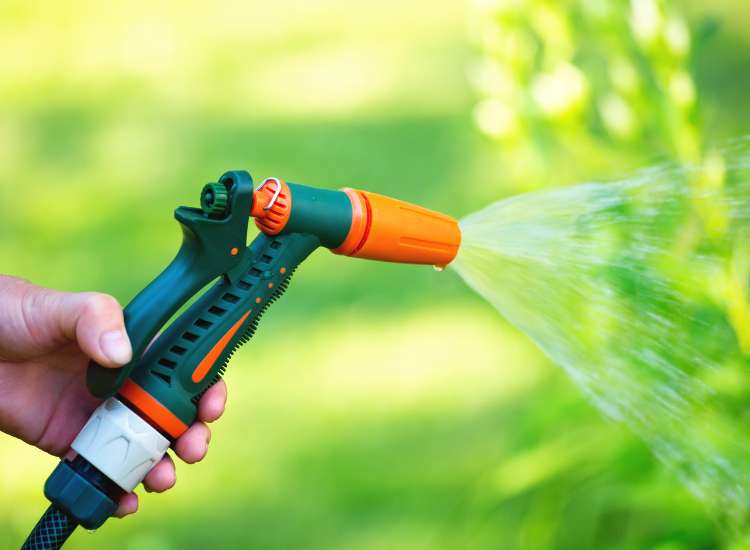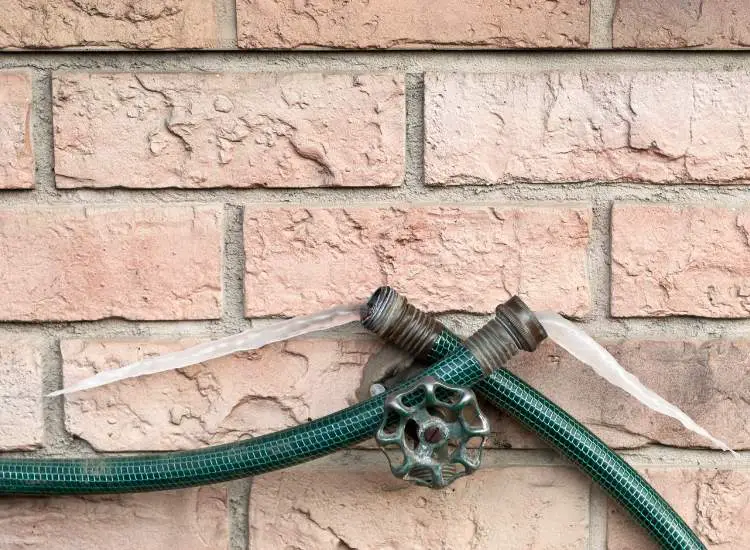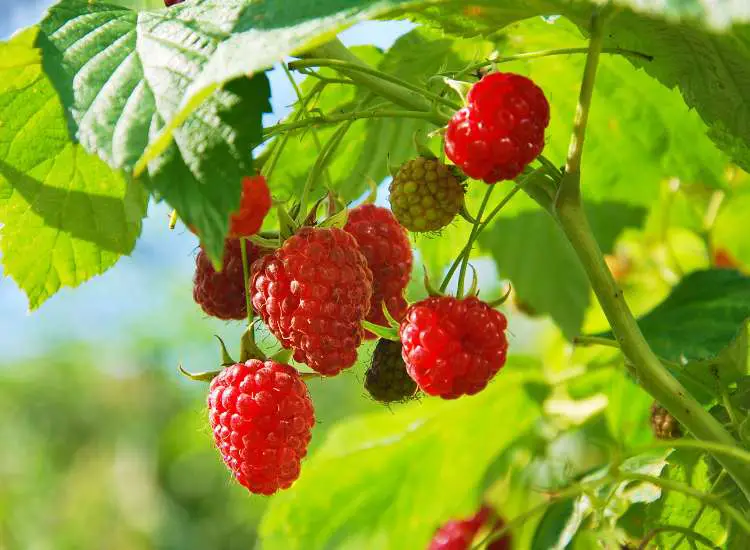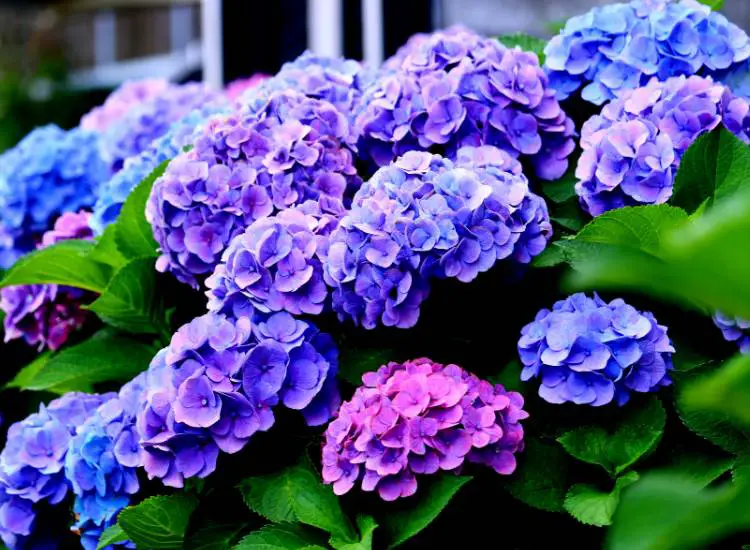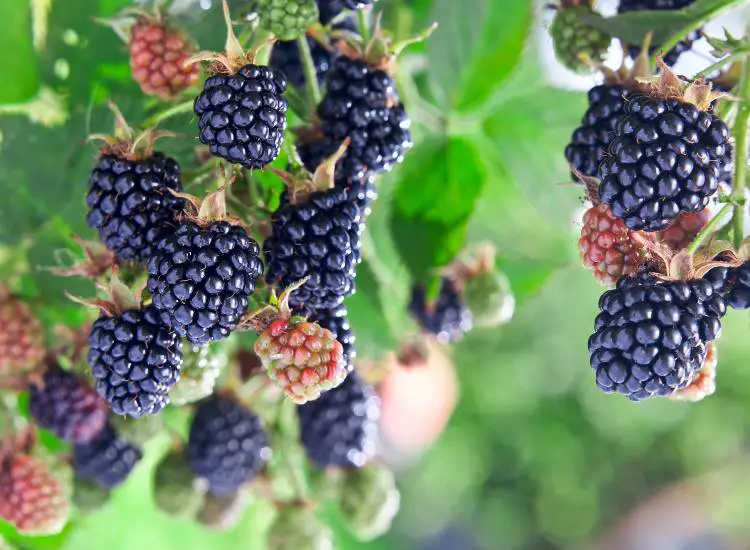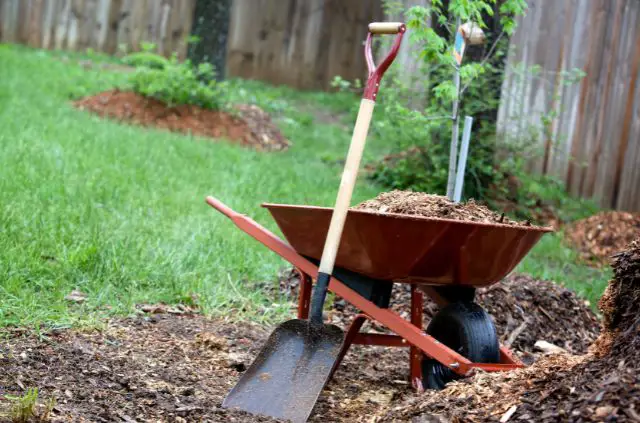Best Mulch for Tomatoes
Growing tomatoes can be incredibly rewarding, as you’ll be able to enjoy fresh, juicy fruits straight from your garden. One key element to consider when cultivating these delicious plants is the type of mulch you choose to use.
This brings us to the following question: what’s the best mulch for tomatoes?
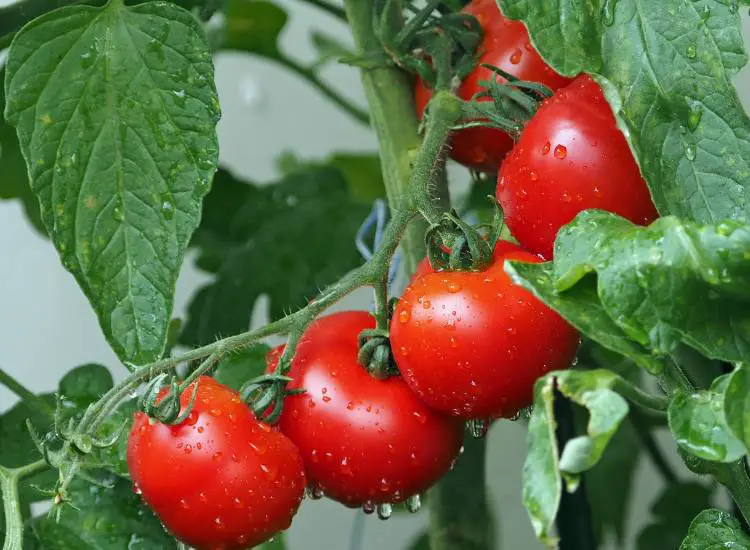
The right mulch not only helps retain moisture and regulate soil temperature, but also keeps weeds at bay and can even boost your tomato plants’ overall health.
In this article, we’ll explore the best mulches for your tomato garden and discuss their benefits to ensure a successful growing season.
Understanding Tomato Mulch
Straw is a common choice for tomato mulch. It’s lightweight, easy to spread, and affordable. As it decomposes, it adds organic matter to the soil, helping to improve its structure. Be careful to choose weed-free, seed-free straw.
Grass clippings can be readily available, especially if you have a lawn. Spread them thinly, so they don’t form a thick mat that prevents air and water from reaching the soil. Ensure the grass hasn’t been treated with herbicides or pesticides.
Shredded leaves are another excellent option, especially in the fall. They decompose relatively quickly, providing nutrients for your tomatoes. Avoid using large leaves that might mat together, like maple or magnolia.
Pine needles or pine straw is often free if you live in areas with pine trees. It’s lightweight, easy to spread, and allows good airflow to the soil. However, pine needles can lower the pH of the soil, so it’s essential to check the acidity and make adjustments if needed.
Compost is not just an excellent soil amendment but also a suitable mulch. It releases nutrients slowly as it breaks down. Ensure your compost is weed-free and fully decomposed to avoid introducing pests or diseases to your tomatoes.
Organic Mulch Options
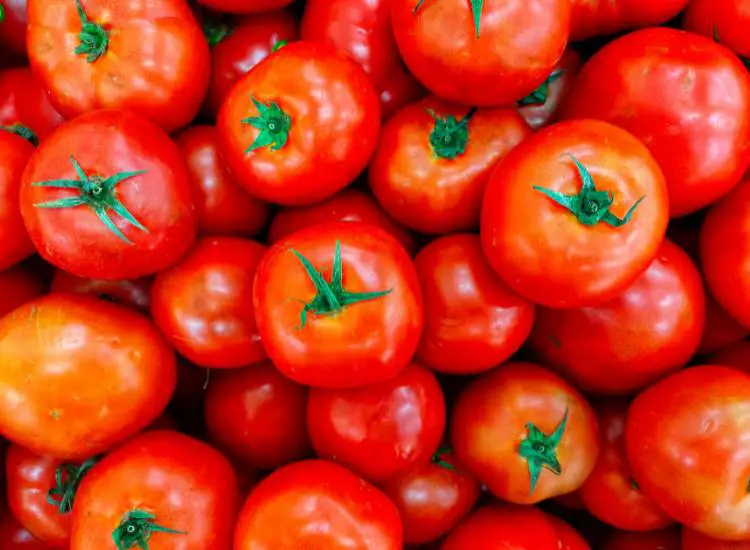
Compost
Compost is a fantastic organic mulch option to enrich your tomato plants with nutrients. Adding a 2-4-inch layer around your plants will help boost their growth and productivity.
Straw
Straw is another great choice, as it’s lightweight and easy to spread around your tomato plants. A 3-4-inch layer can effectively control weeds, retain moisture in the soil, and ensure proper air circulation.
Grass Clippings
Grass clippings make an excellent mulch option, as they decompose quickly and provide nutrients to the soil. Ensure that your grass clippings are pesticide-free and apply a thin layer of about 1-2 inches to avoid over-compaction and potentially smothering your tomatoes.
Inorganic Mulch Options

Plastic Mulch
When you’re growing tomatoes, plastic mulch can be an efficient option. It helps retain moisture, control weeds, and warm the soil. There are different colors to choose from, like black, which absorbs heat, or red, which some studies suggest can increase tomato yields.
However, keep in mind that plastic is non-biodegradable, and you’ll have to remove it after the growing season.
It’s easy to install plastic mulch. Just lay it down on the soil surface, add your tomato plants, and secure the edges. Remember to poke holes for water and air circulation.
Rubber Mulch
Another inorganic mulch you might consider is rubber mulch. Made from recycled tires, it’s durable, long-lasting, and helps suppress weeds. But take note that rubber mulch doesn’t contribute to soil nutrients like organic mulches.
Some concerns have been raised about it leaching chemicals into the soil, but many believe the risk to be minimal.
Rubber mulch can be heavier than organic options, but it’s very low maintenance. To use it, spread a 2-inch layer around your tomato plants, avoiding direct contact with the stems to prevent rotting.
Benefits of Mulching Tomatoes
When you mulch your tomatoes, you’re giving them a host of benefits. It helps retain moisture in the soil, reducing your need to water frequently.
Additionally, mulching reduces weed growth, leading to less competition for nutrients. Your tomatoes will have a higher chance of thriving with fewer weeds around.
Mulch also helps regulate soil temperature, which is essential for tomato plants. The fluctuations in temperature might otherwise cause stress to your plants.
Drawbacks of Various Mulching Materials
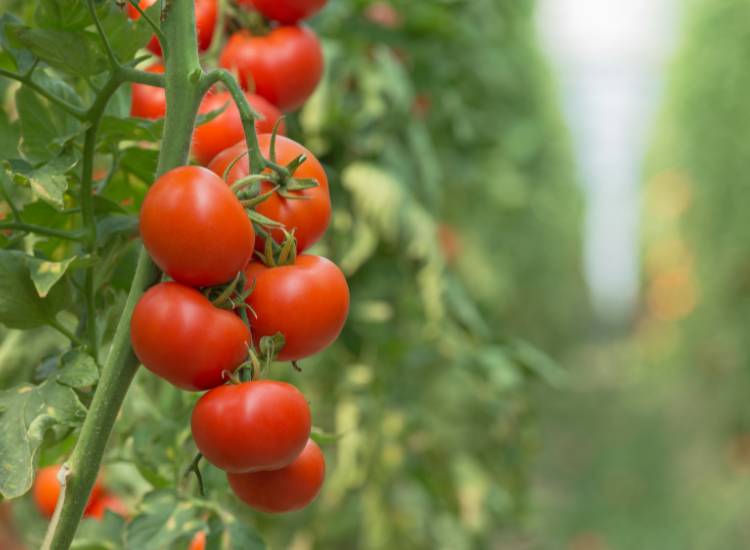
Cons of Organic Mulch
While organic mulch is generally beneficial for your tomato plants, it does have some drawbacks. It can attract unwanted pests, like rodents or insects, who might feed on the mulch or use it as a hiding place.
Furthermore, some organic mulch materials may contain seeds or pathogens that could harm your plants. For instance, hay or straw might introduce weed seeds, causing a weed problem in your garden. Over time, the decomposing mulch may also make the soil too acidic or lead to nitrogen deficiency.
Cons of Inorganic Mulch
Inorganic mulch may not provide the same level of soil enrichment as organic mulches, because it doesn’t break down and improve soil structure. This means it doesn’t add nutrients to the soil, so you’ll need to rely on additional fertilizers.
Some inorganic mulches, such as plastic sheeting, can prevent air circulation around the roots, leading to root suffocation. They can also create a barrier to water, making it difficult for your tomato plants to access moisture. Additionally, inorganic mulch materials can become too hot under the sun, potentially burning your tomato plants or altering soil temperature.
Remember to consider the specific needs of your tomato plants and your garden when choosing a mulch. Balancing the pros and cons of each type will help you select the best option for your tomatoes.
Choosing the Right Mulch for Your Climate
When growing tomatoes, it’s important to choose a mulch that works well in your particular climate. This will help maintain moisture levels, regulate soil temperature, and prevent weeds.
In colder climates, consider using black plastic mulch. It warms up the soil and retains heat, promoting faster growth for your tomatoes. For warmer climates, consider using organic mulches like straw, grass clippings, or shredded leaves. These options will help keep the soil cool and moist.
Keep in mind that organic mulches decompose over time, enriching your soil with nutrients. This is excellent for long-term soil health. Some popular organic mulches include:
- Straw: Lightweight, inexpensive, and easy to spread.
- Grass clippings: Free, readily available, and high in nitrogen.
- Shredded leaves: Free and can be collected in the fall from your yard.
No matter your climate, it’s critical to lay the mulch at the appropriate thickness. Aim for a 2-3 inch layer. This prevents weed growth and helps maintain soil temperatures without suffocating your tomato plants.
Comparing Mulch Costs and Longevity
When choosing the best mulch for your tomatoes, consider the cost and longevity. Organic mulches, such as straw, grass clippings, and leaves, are often more affordable than inorganic options like plastic or rubber. However, organic materials decompose over time, which means you’ll need to replace them more frequently.
In contrast, inorganic mulches may have a higher upfront cost. The advantage is that they don’t break down quickly, so they can last for multiple growing seasons. This extended lifespan potentially saves you time and effort in the long run.
To find the most cost-effective mulch for your tomato plants, consider the following:
- Price per cubic foot: Compare prices of different mulches available locally or online. Pay attention to the cost per unit for a more accurate comparison.
- Longevity: Factor in the lifespan of the chosen mulch material. Organic mulches usually last one season, while inorganic mulches can last for several years.
- Sustainability: Understand the environmental impact of the chosen mulch, such as production methods and transportation. Organic mulches are more eco-friendly as they decompose and return nutrients to the soil.
Knowing When to Replace Mulch
Replacing your mulch at the right time is crucial for healthy tomato plants. Here are some signs to look out for:
- Color change: If the mulch looks faded or gray, it’s time to replace it. Fresh mulch should be a vibrant brown or red color.
- Decomposition: Over time, mulch breaks down and loses its effectiveness in retaining moisture and suppressing weeds. Check the mulch for excessive decay or decomposition, and if it’s breaking apart easily, it’s time for a change.
- Pest infestation: Keep a watchful eye on any pests, such as insects or rodents, that may be attracted to decaying mulch. If you notice an increase in pests around your tomato plants, consider replacing the mulch.
- Plant growth: If your tomatoes aren’t thriving despite adequate care, it could be due to old or ineffective mulch. Refreshing the mulch may give your plants the boost they need to grow strong and healthy.
Frequently Asked Questions
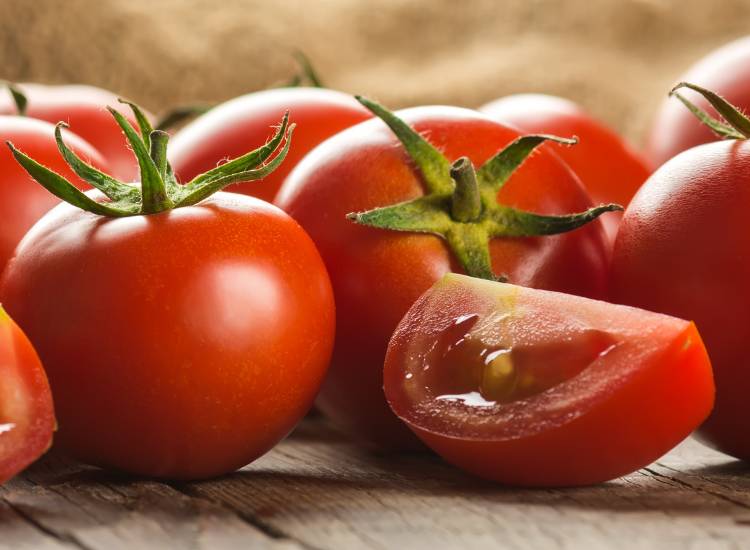
What type of mulch is ideal for tomato plants?
The ideal mulch for tomato plants is organic mulch. Materials like straw, grass clippings, and shredded leaves are excellent choices, as they help keep the soil moist and regulate temperature.
Is it good to use straw mulch for tomatoes?
Yes, using straw mulch for tomatoes is beneficial. Straw prevents soil-borne diseases from splashing onto the plants and helps retain soil moisture. It also decomposes slowly and adds nutrients to the soil.
How can grass clippings be used as mulch for tomatoes?
You can use grass clippings as mulch by spreading a thin layer, about 2 to 3 inches thick, around your tomato plants. Make sure the grass is pesticide-free and not filled with seeds to avoid introducing weeds.
Would cardboard or newspaper work well for tomato plant mulching?
Cardboard and newspaper can work well for tomato plant mulching. Simply layer them under other organic mulch types like straw or grass clippings. This creates a weed barrier and helps retain moisture, but be sure to avoid glossy paper and colored ink.
Can I use cedar or cypress mulch for tomatoes?
It is not recommended to use cedar or cypress mulch for tomatoes, as they contain natural chemicals that may inhibit plant growth. Stick to organic mulches like straw, grass clippings, or shredded leaves for the best results.
What are the benefits of using peat moss as mulch for tomato plants?
Peat moss is beneficial as mulch for tomato plants due to its ability to hold moisture and provide nutrients to the soil. However, it can be acidic, so be sure to monitor your soil pH and balance it with lime if necessary.

